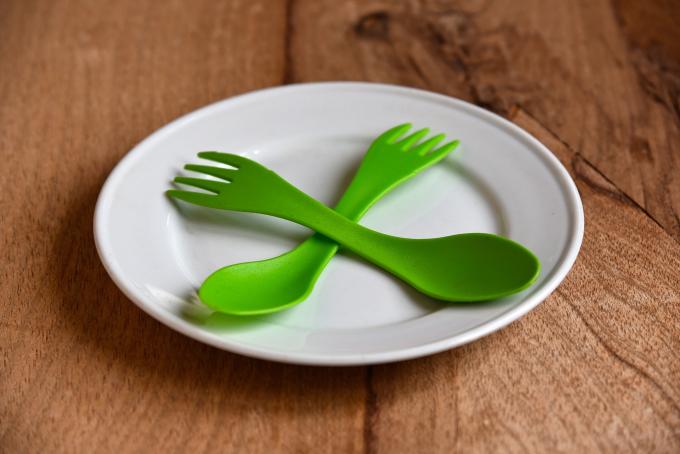
5 billion single-use cutlery items are used every year in Europe, and plastic cutlery is now one of the most common items found littering UK beaches and rivers.
Plastic cutlery is difficult to recycle, with its size meaning it may not be detected during the sorting process. This means instead of being recycled, it can end up in landfill or polluting our rivers and oceans.
There are other materials that can be used for disposable cutlery in order to cut down on plastic waste, and wherever possible reusable cutlery should be used.
Refuse single use plastics - can you swap to wooden cutlery instead of using plastic takeaway cutlery?
Check whether customers are eating in or taking away. If they are eating in, provide reusable cutlery instead.
Offer a deposit return scheme for takeaway customers – provide them with reusable, washable cutlery that they pay a small fee for, which is returned to them if they bring the cutlery back (this works if the customers are not travelling far to eat their food).
- Alternatives -
Reusable metal cutlery
Pros:If you’re serving customers on your premises, then reusable metal cutlery is the best option. It’s durable and it can be reused many times making it more cost-effective than disposable cutlery.Cons:Reusable metal cutlery doesn’t work as well for customers who are taking their food away, although you could consider a deposit return scheme if customers are not taking their food far.Suppliers:Phoenix Catering SuppliesRecycling:This type of cutlery can be reused many times but when it does reach it’s end of life, stainless steel can be recycled.Wooden cutlery
Pros:Wooden cutlery is biodegradable and can be composted after use. Bamboo is a good option because it’s a rapidly renewable resource.Cons:The cutlery may not be as durable as other materials. When using cutlery made from bamboo the resources have to be shipped long distances. Also, using wood as a material contributes to deforestation so the type of wood should be chosen carefully.Suppliers:Phoenix Catering Supplies, Advanced DisposablesRecycling:Wooden cutlery can be composted after use.CPLA Plastic
Pros:This cutlery has very similar properties to typical plastic cutlery but can be broken down in industrial composting conditions.Cons:The cutlery will only compost in industrial conditions so unless it enters the correct waste streams it will still end up in landfill.Suppliers:Phoenix Catering Supplies, The Compostable Cup CompanyRecycling:In Somerset, this type of material cannot be recycled with garden waste or food collections due to the specific facilities required.